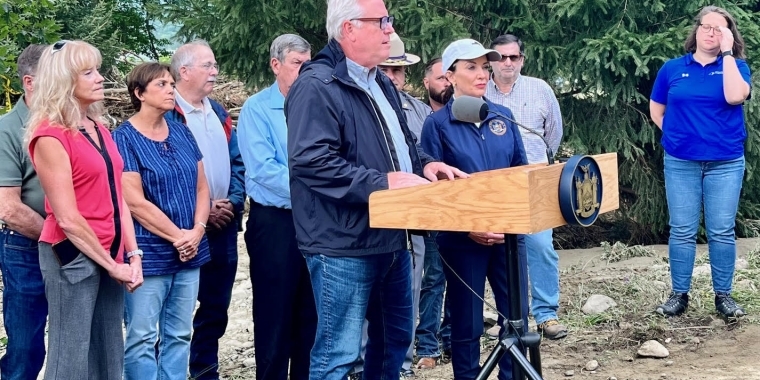
Senate moves to cut costly new wage notice mandate on employers
Thomas F. O'Mara
February 29, 2012
-
ISSUE:
- Economic Development

Albany, N.Y., February 29—The State Senate today approved legislation co-sponsored by Senator Tom O’Mara (R-C, Big Flats) to roll back a provision of a two-year-old state law that took effect this month and began imposing a new costly state mandate on private-sector employers across New York.
The Senate-approved legislation (S.6063) would immediately eliminate the new mandate.
“It’s a perfect example of why New York State continues to be singled out for having one of the worst business climates in America. It’s a state-imposed mandate on the private sector that’s costly, viewed as a waste of time and money and, worst of all, discourages business expansion and job creation. It needs to go,” said O’Mara, noting a January 2012 report from the Tax Foundation that ranked New York as having the second-worst business tax climate in the nation, ahead of only New Jersey.
The state’s new wage notice mandate was included in the “Wage Theft Prevention Act of 2010” signed into law by former New York Governor David Paterson. It requires every private-sector employer to provide employees with a new, annual wage notice, obtain a written acknowledgement from the employee that the notice was received, and then keep that receipt on file for six years or face a $50-per-employee fine for not complying.
The new mandate has been roundly criticized as unnecessarily costly, time-consuming, and redundant by key upstate business advocates including the New York Farm Bureau, the Business Council of New York, the Manufacturers Association of Central New York (MACNY), Unshackle Upstate, and the National Federation of Independent Business (NFIB), among others. The groups have argued that nearly all of the information required by the new annual notice can be found on employees’ pay stubs.
O’Mara said that the legislation he co-sponsors has bipartisan support in the Legislature. It’s currently in the Assembly Labor Committee and must be approved by the Assembly and signed by Governor Andrew Cuomo before becoming law.
Share this Article or Press Release
Newsroom
Go to Newsroom


